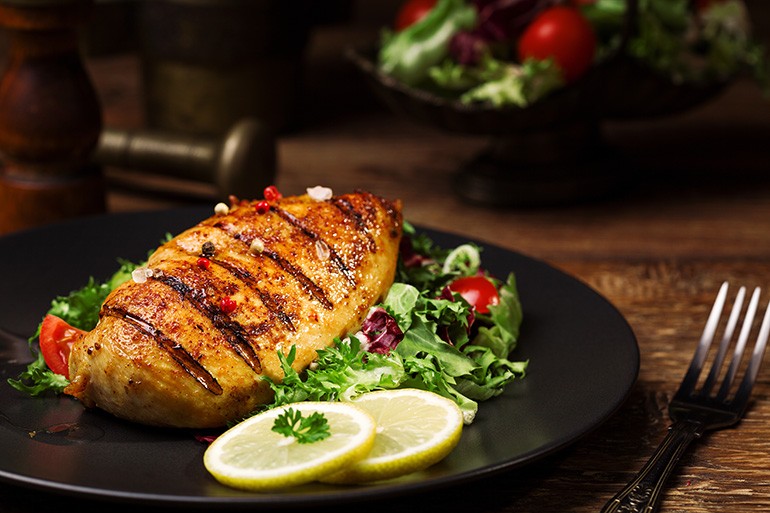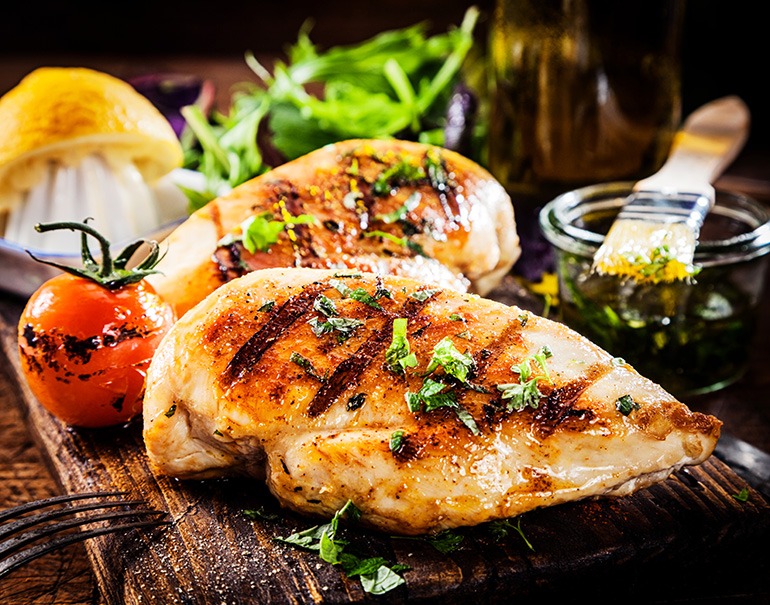Have you ever dealt with spoiled food problems and wonder just how long does cooked chicken last in the fridge? Eating leftovers is a practical way to save money and time for cooking and food preparation. However, there is also that gruesome experience when you opened your storage container and the foul smell of molds and spoilage greets you to your face. Isn’t that just plain disgusting or what?
Knowing the fridge life of your cooked chicken is not a trivial thing to overlook. In fact, I do believe all of us should know if it is still safe to stay in a nook inside the refrigerator or if it is time to pull it out, heat it, cook it again, or just munch it right away.
Quick Navigation
Refrigerator or Freezer Storage Time
According to foodsafety.gov, there’s a huge difference between the storage times for the freezer and refrigerator. The safe time limits basically keep your chicken from becoming dangerous to consume thus avoiding instances such as food poisoning.
Keeping your chicken within the safe time limits generally keep them from spoiling which is a huge waste of resources, not to mention downright gross. Refrigerated cooked chicken have limited lifespan, but frozen cooked chicken remain safe indefinitely. The length of freezer storage, however, affects the quality of your food.
How Long Does Cooked Chicken Last in the Fridge?
Leftover poultry, particularly cooked chicken, has much longer refrigerator life compared to its fresh counterpart. Yes you can keep your cooked chicken longer inside the refrigerator without it spoiling that fast compared to having fresh chicken or turkey refrigerated.
Cooked chicken can last for 3 to 4 days when properly sealed, stored, and refrigerated. However, it could last so much longer than that if you keep it inside the freezer. Frozen cooked chicken stays consumable even after 2 to 6 months of being inside the icy nook of your fridge.
Storage of Chicken Products: A More Detailed Guideline

Food safety is the real reason why we take our time to know all these seemingly trivial details about how long does cooked chicken last in the fridge. It also helps if we compare freezer storage and refrigerator storage to give you more options. Here’s our more detailed table:
| PRODUCT | REFRIGERATOR 40-degree F (4.4-degree C) or below | FREEZER 0-degree F (-17.8-degree C) or below |
|---|---|---|
| Cooked Chicken, Leftover | 3 to 4 days | 4 months |
| Cooked Chicken Casseroles, Dishes or Soup | 3 to 4 days | 4 to 6 months |
| Cooked Chicken Pieces (with gravy or broth) | 3 to 4 days | 6 months |
| Cooked Chicken Patties, Nuggets | 3 to 4 days | 1 to 3 months |
| Restaurant Chicken Leftovers, immediately brought home via a “doggy bag” | 3 to 4 days | 4 months |
| Fried Chicken | 3 to 4 days | 4 months |
| Chicken Broth or Gravy | 3 to 4 days | 2 to 3 months |
| Chicken Salad | 3 to 5 days | *Do not freeze if it contains mayonnaise |
| Chicken Luncheon Meat (package-sealed) | 2 weeks but don’t extend to more than 1 week after the sell-by date has expired | 1 to 2 months |
| Canned Chicken Products | 2 to 5 years in the pantry | *Do not freeze when product is still canned |
| Store-cooked Chicken Dinner (with gravy) | 3 to 4 days | 2 to 3 months |
| Take-Out Convenience Chicken (Fried, Rotisserie, etc) | 3 to 4 days | 4 months |
| Chicken Luncheon Meat (Deli-Sliced) | 3 to 5 days | 1 to 2 months |
| USDA Seal Commercial Brand (Vacuum-packed dinners) | Opened 3 to 4 days Unopened 2 weeks | 4 months |
| Chicken Hotdog (Unopened) | 2 weeks but don’t extend to more than 1 week after the sell-by date has expired | 1 to 2 months |
| Chicken Hotdogs ( Opened) | 1 week | 1 to 2 months |
| Giblets or Ground Chicken | 1 to 2 days | 3 to 4 months |
| Fresh Chicken, Whole | 1 to 2 days | 1 year |
| Fresh Chicken, Parts | 1 to 2 days | 9 months |
Tips How to Make Chicken Products Last Longer
The safe use of your poultry products or extending the lifespan of your cooked chicken also depends on other factors. First, make sure that the chicken product is purchased before its expiry date. This ensures that the chicken or poultry meat is safe and not contaminated.
Follow the handling instructions and recommendations on the product. Make sure the chicken is properly kept in its package until you decide to use it. For uncooked chicken, put the product in the freezer without taking it from its original package. Unwrap or rewrap according to proper and safe chicken handling instructions.
Power Outage and Frozen Cooked Chicken
One of the biggest threats to your cooked chicken inside the fridge is power outage. When you experience power interruptions, it could have a drastic effect on your food. The longer the hours of power outage, the more the temperature changes, thus the quality of the frozen food.
Thaw or partially thaw your cooked chicken in the freezer since you can still safely refreeze it as long as it contains ice crystals. Make sure that the temperature of your thawed or partially thawed cooked chicken is at 40-degree Fahrenheit or below.
The quality of the cooked chicken is basically affected however the important thing is that it is still safe to consume. You might consider using an appliance thermometer inside your fridge in case power outages happen. The device allows you to easily determine if the food is safe.
Check the thermometer once the power is back on. If the thermometer is at 40-degree Fahrenheit or below, then the chicken is still safe to eat and could be refrozen. Take note that it is never safe to taste the food in order to determine its edibility. Don’t rely on appearance and odor.
Important Note!
How long does cooked chick last in the fridge during power outage? For cooked poultry products and ground poultry, it is still possible to refreeze when it still contains ice crystals. Discard it once the cooked chicken is thawed or held above 40-degree F for more than 2 hours.
The same procedure also works for casseroles, soups, and stews. Moreover, it is safer and highly recommended to discard any items, whether cooked chicken or otherwise, if it is drenched with raw meat juices.
Judging at how the chicken looks, tastes or smells will not tell you if it contain dangerous bacterial growth. Know how long does the cooked chicken last in the fridge not just to avoid the nasty experience of opening up a mold-stricken food. Keeping your food in the fridge within its safe time limit saves you from salmonella and food poisoning.
References:

